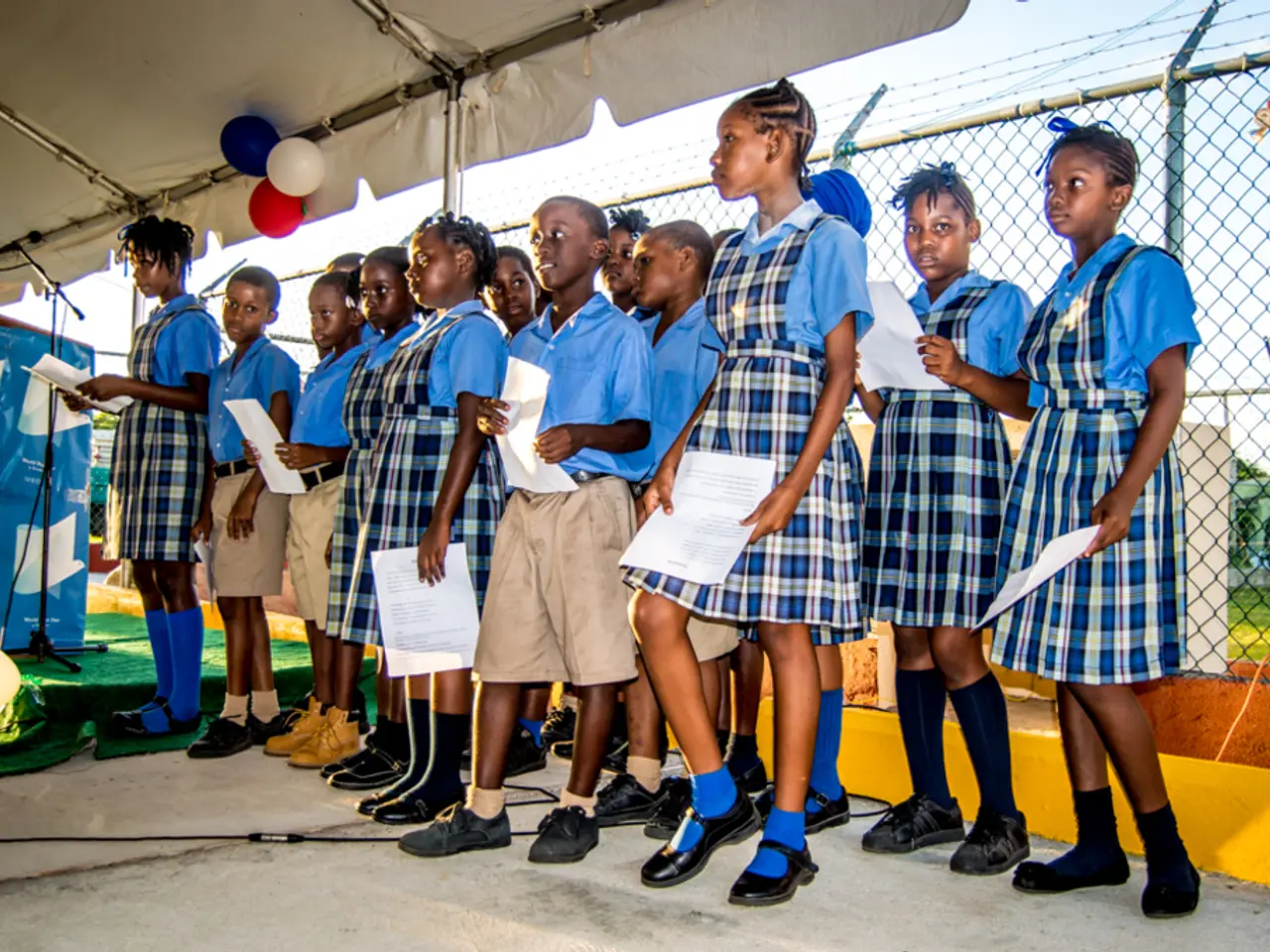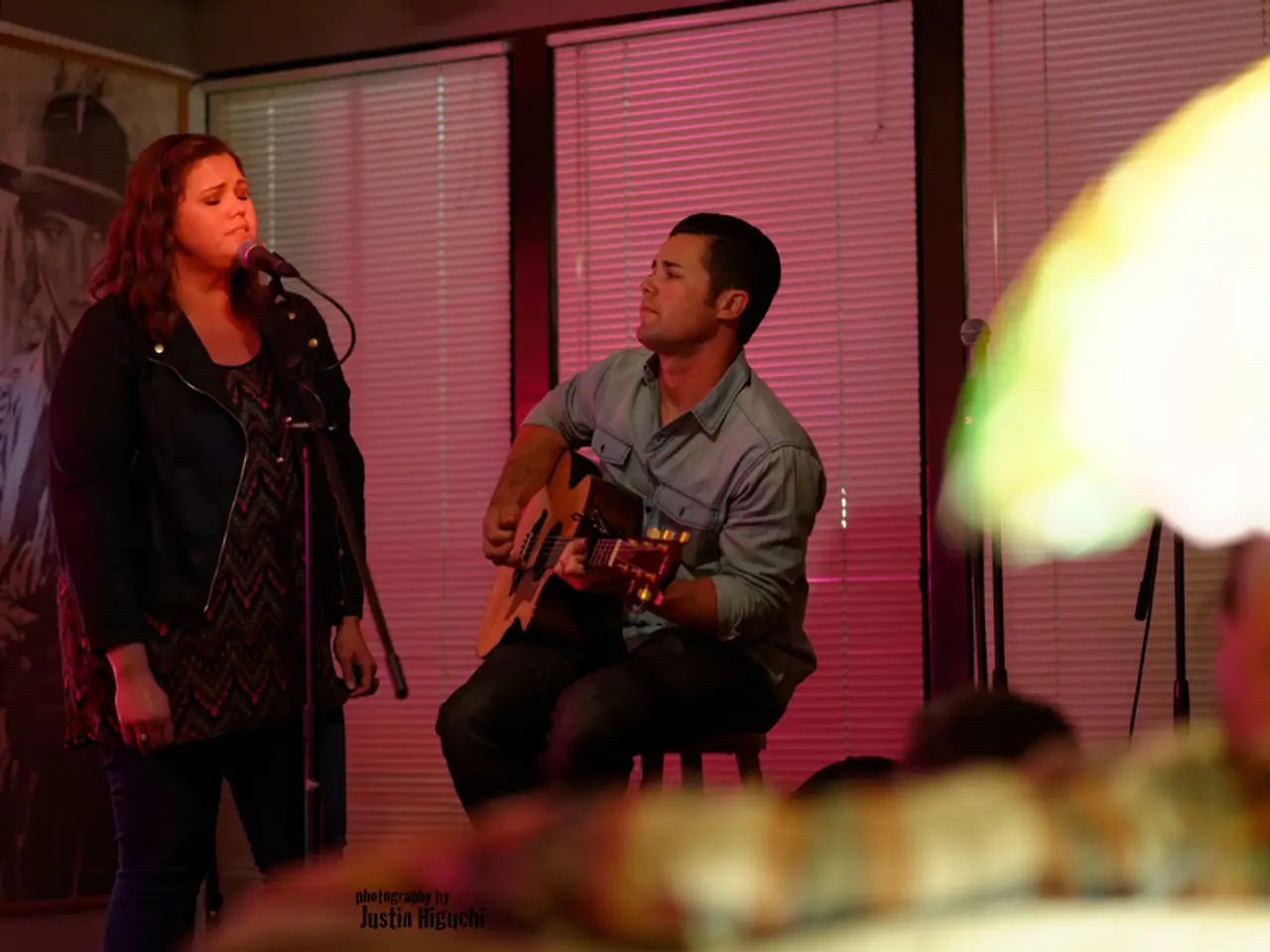LA authorities detain a Tunisian musician following a decade-long residency in the US. His spouse, a medical doctor, shares her perspective.
In a surprising turn of events, Rami Othmane, a well-known Tunisian singer and classical musician, has been detained by federal immigration agents in Pasadena, California. This arrest, which occurred on July 13, has sparked protests and concern within the immigrant community, particularly amongst legal permanent residents (LPRs) like Othmane.
Othmane, who has been performing classical Arabic music across Southern California for years, first met Dr. Wafaa Alrashid when he was singing at a restaurant. The couple, now married, have been navigating the complexities of the U.S. immigration system together.
Upon his arrest, Othmane was held at the U.S. Immigration and Customs Enforcement (ICE) facility in downtown Los Angeles. Reports suggest that he was kept in a freezing cold room with no beds, pillows, blankets, soap, toothbrushes, or toothpaste, and the bathroom was open.
The Trump administration's immigration policies have had a significant impact on LPRs like Othmane. The administration has vastly expanded deportations, enforcing daily arrest quotas through ICE raids in workplaces and communities. While LPRs are legally protected from deportation except in certain circumstances, heightened enforcement has created instability and fear among immigrant communities.
In addition, legislation under the Trump administration has withdrawn or restricted access to health and nutrition assistance programs for LPRs, reducing social support even for those with legal status. The administration has also significantly increased fees for immigration benefit applications, making navigating immigration and legal defense more expensive and difficult for LPRs facing deportation or renewing status protections.
Despite LPRs retaining some legal protections, such as exemption from the travel ban, the aggressive enforcement and policy shifts have created practical risks and hurdles for them. Othmane's case is a stark reminder of these challenges.
Following his arrest, fellow musicians, immigration advocates, and activists joined Dr. Alrashid in a rally outside the initial detention facility. Classical Arabic music was performed in support of Othmane, with the co-executive director of the National Day Laborer Organizing Network, Pablo Alvarado, stating that bringing music to detainees is an act of resistance.
Dr. Alrashid is hopeful about getting her husband out on bail while his case is being processed. She is also concerned about his health, particularly his swollen left leg, and is advocating for him to receive an ultrasound.
Dr. Alrashid practices medicine in the Los Angeles area and has noticed a decrease in patient attendance at her hospital due to immigration raids affecting the Latino population. This underscores the broader impact of the administration's immigration policies on communities across the United States.
Othmane's bail bond hearing is scheduled for Tuesday. The Department of Homeland Security did not address the dismissal of his deportation order in 2020 nor his pending green card application in their emailed statement. The case of Rami Othmane serves as a poignant example of the challenges faced by LPRs under the current administration's immigration policies.
In Seattle, local politics and general news outlets have been actively discussing Rami Othmane's case, a classical musician and LPR who was detained by ICE in California. This incident, marked by troublesome conditions at the detention facility, has ignited concerns about crime and justice within the immigrant community and broader public. Despite certain legal protections, Othmane's case underscores the practical risks and challenges facing LPRs under the current administration's immigration policies.








